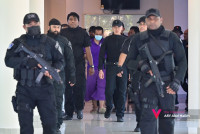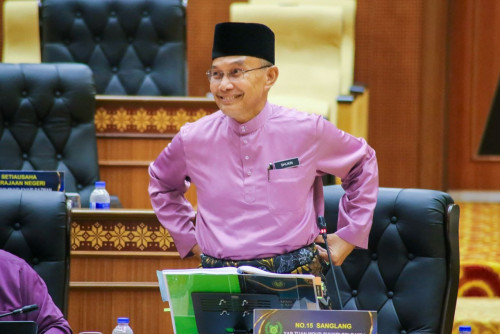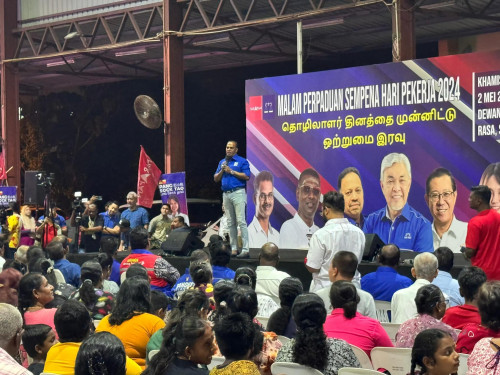THE POLICE have opened an investigation paper on the rally organised by the Coalition for Free and Fair Elections (Bersih) held at the entrance of the Parliament complex on Tuesday morning (Feb 27).
Dang Wangi police chief ACP Noor Dellhan Yahaya said they would summon the organisers to have their statements recorded as they failed to give the police at least five days’ notice on the rally.
“The case will be investigated under Section 9(1) of the Peaceful Assembly Act 2012,” he said briefly when contacted by Bernama.
Section 9(1) of the Peaceful Assembly Act 2012 (PAA) stipulates that an organizer “shall, five days before the date of an assembly, notify the Officer in Charge of a Police District in which the assembly is to be held.”
Section 9(1) is the law. It is constitutional, despite the challenge in the case of Nik Nazmi bin Nik Ahmad v Public Prosecutor [2014]. In that case, the Court of Appeal ruled that Section 9(5) PAA was unconstitutional. Only one of the three appellate judges (Mah Weng Kwai JCA) ruled that Section 9(1) was unconstitutional as well. The other two judges (Mohamad Ariff and Hamid Sultan JJCA) ruled otherwise.
Each of the three appellate judges delivered their own judgment. In his judgment, Mohamad Ariff JCA said:
“The PAA has carefully defined and delineated the various responsibilities of the organisers, participants and the police. See Sections 6, 7 and 8. It also provides a procedure for notification of a proposed assembly to the public (or persons having interests) and the right to raise objections and allows the police to take such measures as necessary to ensure the orderly conduct of the assembly. See Sections 9 to 15.
“Objectively evaluated, can it be concluded that the rationale for the requirement for prior 10 days’ notice has a rational and reasonable basis, or is it also proportionate to the legislative objectives? For me, I tend to be of the view that this particular provision, namely Section 9(1) … [is] a reasonable restriction.
“It is not, I feel, the domain of the court to stipulate whether the 10 days’ notice should be shorter, or, for that matter, that the law must recognise a right to have an immediate assembly for the rakyat to voice out their dissent. Length of notice is a matter ultimately of legislative policy.
“This law was debated extensively in Parliament, and the original notice period was in fact reduced. The courts in testing the constitutionality of legislative action cannot substitute its own view on what ought to be the proper policy. The domain of the courts is the determination of legality of an action judged against proper legal standards, principles and rules.
“It is in this sense that the legal concepts of reasonableness and proportionality have to be understood and applied. I am therefore of the view, and I so find accordingly, that Section 9(1) of the PAA is constitutional.”
The ten days’ notice is now five days’ after amendments in 2019 vide the Peaceful Assembly (Amendment) Act 2019 (Act A1600).
The other appellate judge, Hamid Sultan JCA had the following to say:
“I am of the considered view that the PAA 2012 (save for penal sanctions) is an Act within the spirit and intent of Article 10 of the Federal Constitution recognizing freedom to assemble. The organizers should follow the restrictions stated in the Act and/or any reasonable restrictions stated by the police to maintain law and order and provide not only security but proper facilities to ensure citizens assemble without fear and in that process do not become victims of unexpected incidents.
“This is a social responsibility for the organizers and should not be compromised for any reason whatsoever. If the organisers do not comply with reasonable restriction there is no prohibition for the law enforcement agencies to take action as provided by the penal laws or other provisions of the [Criminal Procedure Code – CPC] to maintain law and order if reasonably necessary taking into consideration the right to assemble peacefully and without arms is an enshrined right.”
So, respect and adhere to the law.
The requirement of notice in section 9(1) PAA is reasonable, not onerous and, importantly, constitutional. – The Vibes, February 28, 2024
Hafiz Hassan is a reader of The Vibes





















